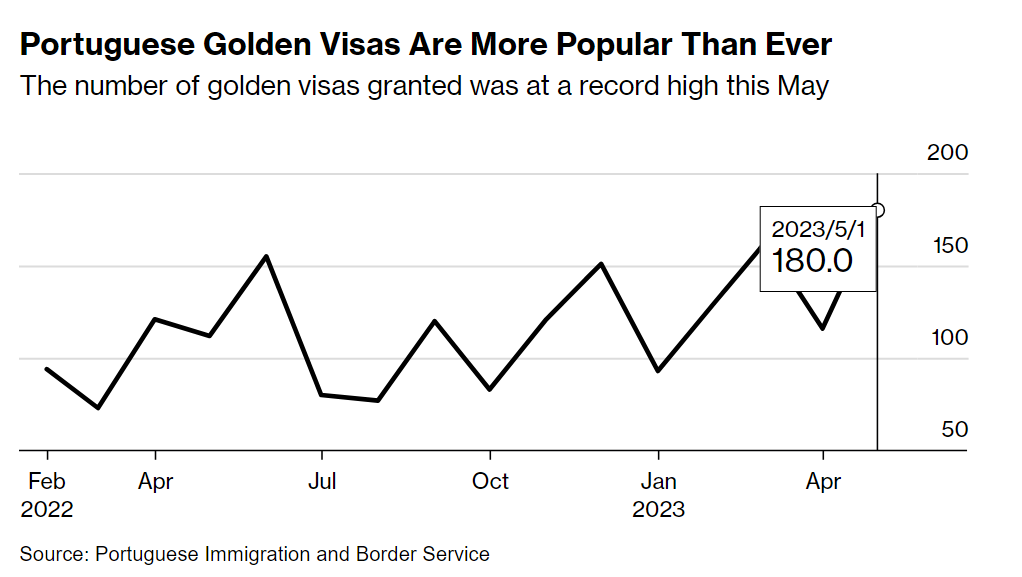
European programmes that offer citizenship "in exchange" for investment- particularly in real estate- are alive and well in Europe, despite calls for an end to the issuing of new golden visas. This is, incidentally, a very controversial issue in Portugal, with the government wanting to put an end to the Golden Visa programme after more than a decade in force - it has been approved by the government and in parliament, and the only thing missing is the green light from the President of the Republic for the programme to come to an end.
Despite all the controversy - several players in Portugal's real estate sector have pointed the finger at gold visas as being "to blame" for rising house prices and the country's housing crisis - an article published by Bloomberg reports that there is still interest in this investment attraction programme. According to the agency, in Greece and Portugal, the number of visas granted in recent months has been on the rise - "Portuguese Golden Visas are more popular than ever," reads the article. In Italy and Spain, demand reached record levels.

The same article reports that more than 132,000 people gained citizenship through these programmes between 2011 and 2019, with the political reaction rising as they were associated with rising housing prices and lax regulation.
Members of the European Parliament and the European Commission have recommended that European Union (EU) countries close this type of programme, something that has already happened in Ireland and the United Kingdom. The conflict between Russia and Ukraine has put golden visas - as gold visas are also known - under additional scrutiny for being, as Belgian MEP Saskia Bricmont put it, a potential way for "oligarchs, criminals and corrupt politicians" to buy "their way into Europe and launder their money, image and identities".
In Portugal, as already mentioned, there has been a lot of criticism of the Golden Visa programme, which allows non-EU citizens to obtain Portuguese nationality and thus move around the Schengen area. That's after buying houses for more than 500,000 euros. Marcelo Rebelo de Sousa is waiting for the green light to enact the Mais Habitação (More Housing) package, with the end of gold visas being one of the measures contemplated by António Costa's government.
In Greece, the government has doubled the investment threshold from 250,000 to 500,000 euros in certain areas of the country so that non-EU citizens can qualify for a Golden Visa. Montenegro has pledged to end its programme and Spain is considering whether to increase the minimum investment - from 500,000 to one million euros - or eliminate it altogether.
The truth is that, despite everything, there is little evidence that golden visas are more difficult to obtain. "We haven't seen any significant changes in the difficulty of obtaining a visa," said Patricia Casaburi, managing director of immigration consultancy Global Citizen Solutions, quoted by Bloomberg, stressing that there is still a lot of interest in the programme.
Article seen on (Bloomberg)
Europe's Golden Visas Are Booming, Despite Calls to Get Rid of Them